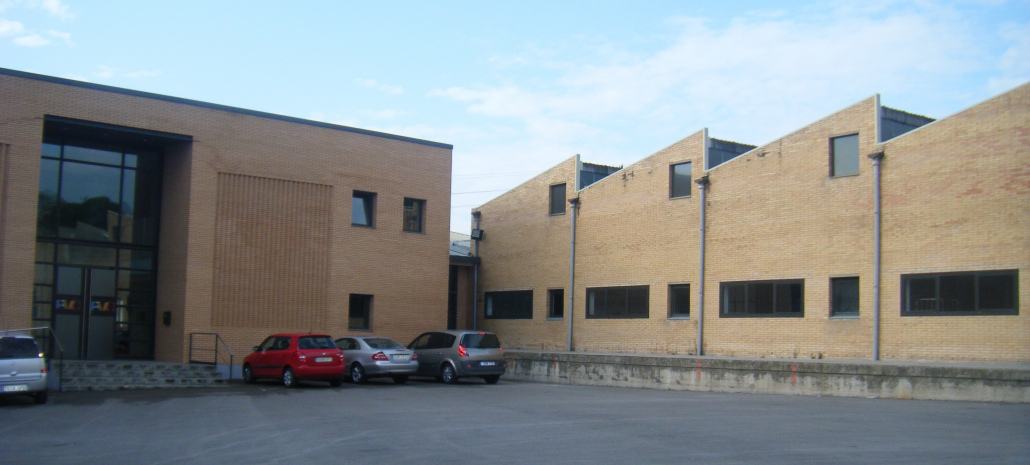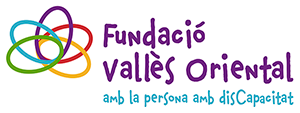Xavier Quincoces Employment Centre Occupational Therapy Service (STO)
The purpose of the Xavier Quincoces Employment Centre is for adults with learning difficulties to achieve full social integration in the community they belong to with the help of two services: the Occupational Therapy Service (STO) and the Employment Inclusion Service (SOI). These each have their own objectives and means of operation but they are closely related in terms of service management and organisation.
The STO service looks after people with learning difficulties who need intensive and/or periodic care to help them with most activities in their daily lives in social, personal and psychopedagogical terms.
People assessed as “STO with assistant” need an extensive/general support programme (intensive supervision), while people assessed simply as STO need an extensive/limited (periodic) support programme.
In both cases, these are Individual Support Programmes specifying the care objectives for each person and describing the activities and methods to be used. They emphasise the personal and social adjustment activities intended to achieve optimum development of the people served in their everyday lives and to improve their relationship with their environment. Older people forming part of the STO – the specific unit in charge of their day care – are given particular consideration.
Every year, an Annual Activity Programme is drawn up during January to plan what is to be done during the year and the objectives in all working areas. The activities are based on personal and social adjustment aimed specifically at each individual service user. The aim is structural rehabilitation of the person and an improvement in their relationship with their environment, with the service user’s direct participation.
- Communication: activity of communication, conversation, language re-education and alternative communication system (ACS) activity.
- Personal and cognitive development: personal care activities, IT, cognitive stimulation activities in the third age, hairdressing and beauty.
- Creativity: art, cooking, music therapy, drama and practical and decorative arts.
- Physical maintenance and health: walking, psychomotricity, aerobics, health and sex education, therapeutic massage, football, behavioural care, swimming (optional).
- Social and cultural skills: cultural visits and socialisation outings, knowledge of the community, activities to discover and celebrate cultural traditions, festivals and birthdays, ballroom dancing, care and maintenance of our environment, assembly and audiovisuals.
Methodology
At the Occupational Centre we put planning focused on each person with learning difficulties at the centre of the way we work. This new system was agreed in 2013 and first implemented in 2014 in a project we call the “New Day Care Model”.
We encourage the conditions necessary for achieving improvements in all areas of a person’s welfare and quality of life with their active participation, based on respect for their dignity and rights, their interests and preferences. Every person benefiting from the service has a life and care plan designed as a tool for action. This is the result of conversations between the user, their family, the community around them and professionals from various services. Diversity and variety among service users is taken into account with flexible, multidisciplinary, personalised care adapted to the person, with services designed around their individual needs. Everyone’s personal schedule of weekly activities, based on their strengths or competencies, is drawn up with the help of all elements of the service.
Our work is not limited to looking after people’s needs. Instead we promote and facilitate projects to achieve the happiness of all of the people cared for at our centre. Their wishes and desires are the driving force for them to achieve a fulfilling life.
In each of the Occupational Centre’s services:
Resources are adapted to the new care structure in line with the New Day Care Model, adapted to the Occupational Centre, incorporating the necessary improvements and changes.
The tools and resources making self-management and self-determination easier for people with learning difficulties are adapted
A proposal for rehabilitation and training activities suited to the developing needs of the service users is planned
Spaces are created to allow them to express their needs, personal interests, hopes and desires
Facilities
The Occupational Centre occupies 2,700 m² on land belonging to the FVO arranged on a single floor with different levels to house the Occupational Centre services. There are currently 18 personal and social adjustment rooms used by the STO so that each group has its own place for daily activities.
There is also a psychomotricity room, an IT and communication room, a marquetry room, a library and computer room, a crafts room, a sick bay and a leisure room, as well as a garden and vegetable garden area, a multisports court and petanque rinks.
There is also a reception area, the Sílvia Ramada function room, the speech therapy, psychology and pedagogy office, and offices for the centre management, teachers and social workers.
History
It began in 1991 with the assessment of the first seven users and in 1992 the adult EVO (Assessment and Guidance Team) assessed 41 more people as members of the centre. The main group of 48 users who formed part of the Employment Centre came from the same workshop, which, after the publication of the Decree in 1987, was reorganised in April 1992 to form the Valldoriolf Workshop Employment Centre (now called the Xavier Quincoces Employment Centre).
The renovation of the Occupational Centre’s facilities has made it possible to look after a wide range of adults with learning difficulties and there is now capacity for 160 people to be registered with the STO service.



